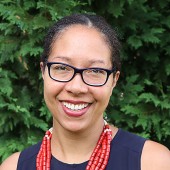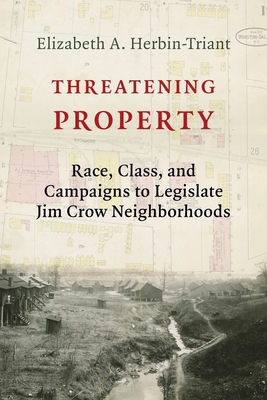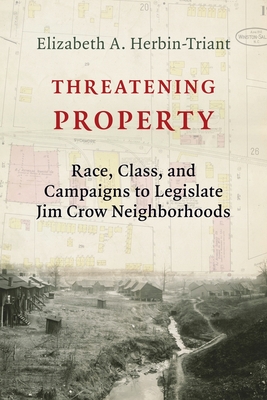Elizabeth A Herbin-Triant
I am Associate Professor of Black Studies and History at Amherst College and my courses include “Slavery in U.S. History & Culture,” “The Age of Jim Crow,” “African-American History from Reconstruction to the Present,” “The History of the U.S. South,” and “Research in Black Studies..”
My scholarship concerns the long history of white supremacy and African-American opposition to white supremacy, and it combines the fields of African-American history and the history of capitalism (particularly racial capitalism). I believe that shedding light on the history of racism and white supremacy in the U.S., which I do in my research and teaching, is an important step toward dismantling these forces and working toward racial justice.
My 2019 book, Threatening Property: Race, Class, and Campaigns to Legislate Jim Crow Neighborhoods, investigates efforts to segregate cities and the countryside by race in early twentieth-century North Carolina. It tells the story of middle-class white people who responded to the economic advancement of African Americans by pushing for neighborhoods to be segregated, examining how these people worked to exclude African Americans, how African Americans responded to residential segregation campaigns, and why residential segregation has persisted even after segregationist policies were ended.
My new book project, “Lords of the Lash and Loom: Abolitionists, Anti-Abolitionists, and the Business of Manufacturing Slave-Grown Cotton,” tells the story of antebellum Lowell, Massachusetts—a place deeply tied to the South’s “peculiar institution” and shaped by competing currents of antislavery activism and anti-abolitionism. Through an examination of the economic, political, and social ties connecting investors in Lowell’s textile factories to enslavers in the South, this project explores the central but overlooked part played by mill investors in supporting the institution of slavery in the United States. In addition to investigating northern complicity with slavery, I explore antislavery activity in Lowell, including the essential contributions of members of Lowell’s Black community to this work.
Education
Ph.D., Columbia University, 2007
M.A., Columbia University, 2001
A.B., Harvard College, 1999
Source: Amherst College
Books by Author
Videos










